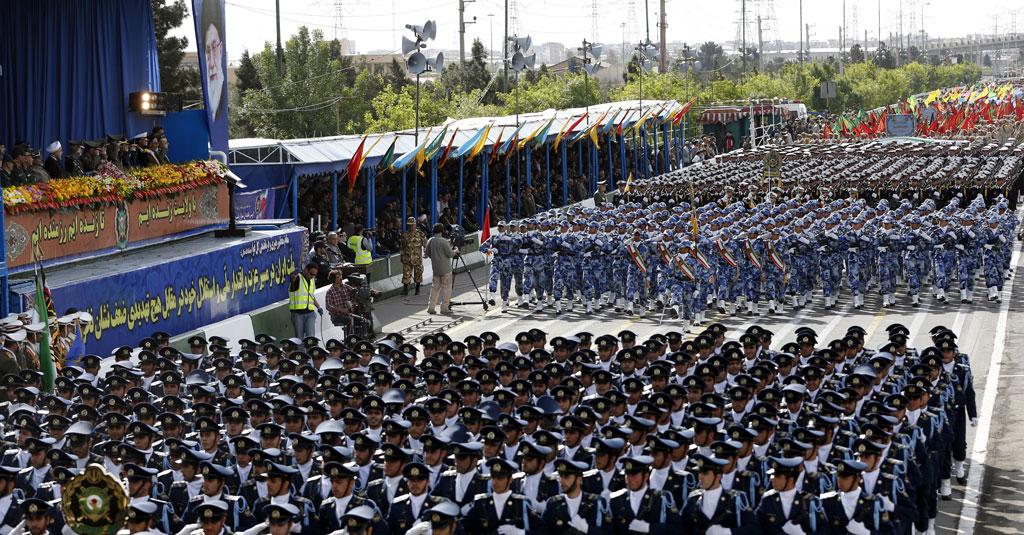It is no longer accurate to describe the war in Syria as a conflict between Syrian rebels on the one hand and Bashar al-Assad’s regime forces “supported” by the Iranian Revolutionary Guards (IRG), Hezbollah, and Iraqi militias on the other. Most major battles in Syria—along the frontlines of regime-held areas—are now being directed and fought by the IRG and Hezbollah, along with other non-Syrian Shi'i militias, with Assad forces in a supportive or secondary role.
The Iranian regime has spent billions of dollars on weapons and fighters shipped to Syria since the start of the Syrian revolution in March 2011. It has also financed a large part of the economy in the regime-controlled parts of Syria through loans and credit lines worth billions of dollars. The Assad regime would have collapsed were it not for this Iranian support.
One result of this heavy Iranian involvement in the war in Syria has been a change in the nature of the relationship between the Syrian and the Iranian regimes. From historically being mutually beneficial allies, the Iranian regime is now effectively the dominant force in regime-held areas of Syria, and can thus be legally considered an “occupying force,” with the responsibilities that accompany such a role.
MORE:
- Iran Launches Airstrikes Against Islamic State in Iraq
- Obama’s Legacy on Iran
- 5 Possible Topics for Obama’s Last 2014 News Conference
- Iran Suspected in Cyberattack on U.S. Casino
The revolution in Syria can therefore also be considered an international conflict that involves a foreign military occupation by Iranian forces and a struggle by the Syrian people against this occupation, as defined by the 1907 Hague Regulations and the Fourth Geneva Convention of 1949.
Recognizing the war in Syria as an international conflict also means that, as an occupying force, Iran has certain duties toward the Syrian population under its occupation. There is sufficient evidence that the Iranian regime and its various forces and militias fighting in Syria have repeatedly violated many of these duties since March 2011.
In November 2014, the campaign group Naame Shaam, of which the authors are founders, released a report on the role of the Iranian regime in the ongoing war in Syria. The report, “Iran in Syria: From an Ally of the Regime to an Occupying Force,” provides many examples of human rights violations, war crimes, and crimes against humanity committed in Syria that would likely not have taken place without the Iranian regime’s direct military involvement.
The Iranian regime’s adventure in Syria is not just about saving Assad and his regime. Rather, it has been primarily driven by the Iranian regime’s own strategic interests. At the forefront of these interests is keeping arms shipments flowing to Hezbollah in Lebanon via Syria, so as to keep Hezbollah a deterrent against possible attacks on Iran’s military nuclear program. The other Iranian lines of defense include the government and various Shi'i militias in Iraq, Hamas and Islamic Jihad in Gaza, and recently the Houthi militias in Yemen.
If the Assad regime falls, Iranian arms shipments to Hezbollah are likely to cease, and Hezbollah would no longer be the deterrence against Israel that it is now. The Iranian regime would therefore feel more vulnerable and would not be able to negotiate from a strong position during nuclear talks with international powers. It may even have to at least temporarily give up its dreams of building a nuclear bomb. Resources in Iran—human, economic, and military—have as a result been mobilized to keep Assad in power.
The U.S. administration has so far been unwilling to intervene in a decisive manner against the Assad regime, the IRG, and Hezbollah. It was providing moderate Syrian rebels with just enough support not to lose the war, but not enough to win it either. Even this support has declined in recent months, and rebel groups have suffered more losses in northern Syria. The Naame Shaam report describes this as a “slow bleeding” policy adopted by the Obama administration toward Iran and Hezbollah in Syria.
Continue reading this article at the Middle East Institute. Republished with permission from the Middle East Institute.
Fouad Hamdan, from Lebanon, is the executive director of the Rule of Law Foundation, which supports the Naame Shaam campaign. Naame Shaam, which means “Letter from Syria” in Persian, is a group of Iranian, Syrian, and Lebanese activists and citizen journalists focusing on exposing the Iranian regime’s role in Syria.
Shiar Youssef, from Syria, is the head of Naame Shaam’s Research and Advocacy team. Naame Shaam, which means “Letter from Syria” in Persian, is a group of Iranian, Syrian, and Lebanese activists and citizen journalists focusing on exposing the Iranian regime’s role in Syria.
